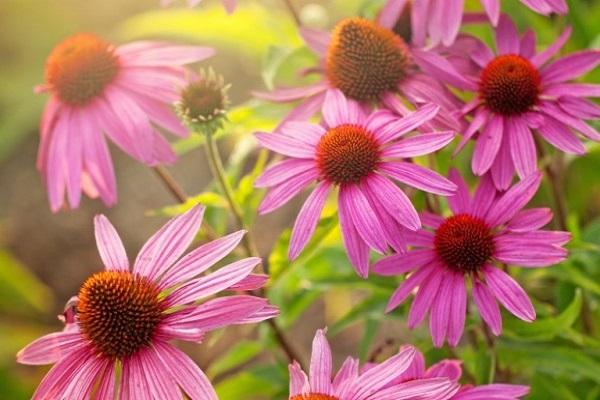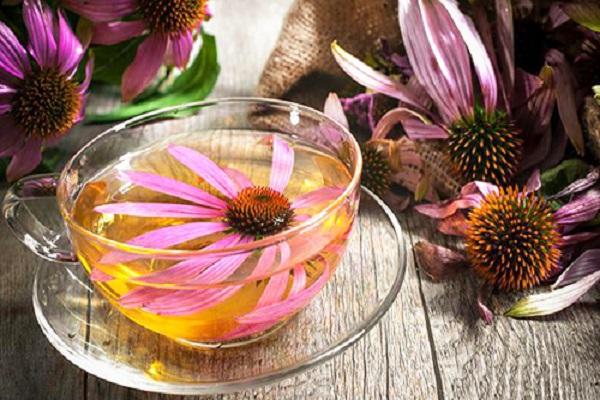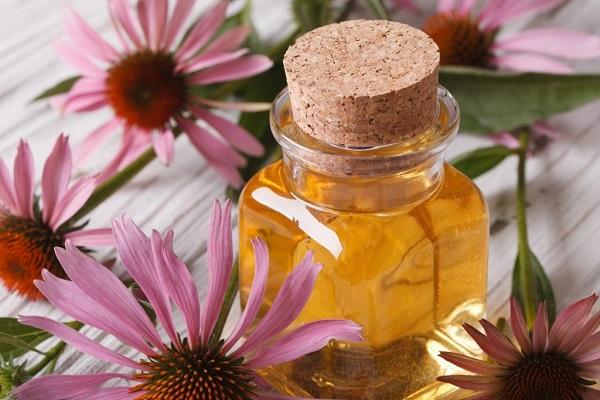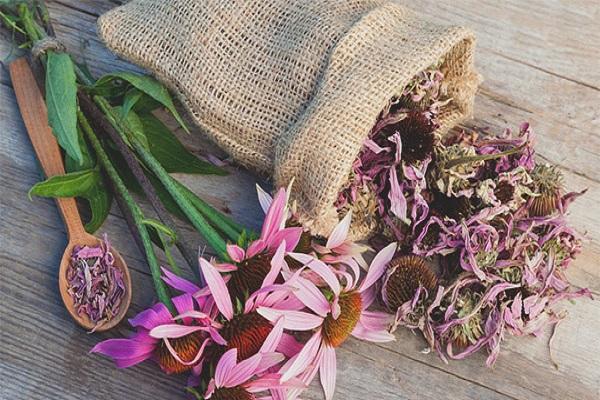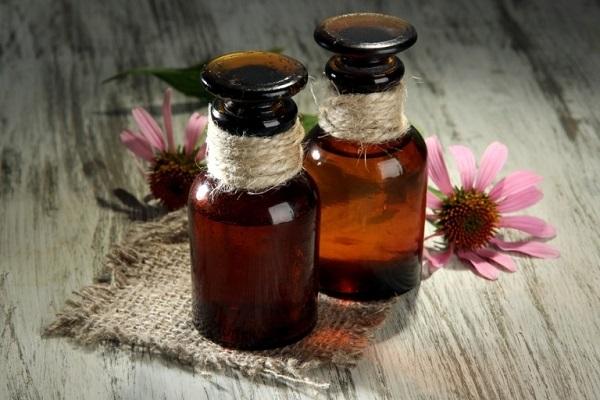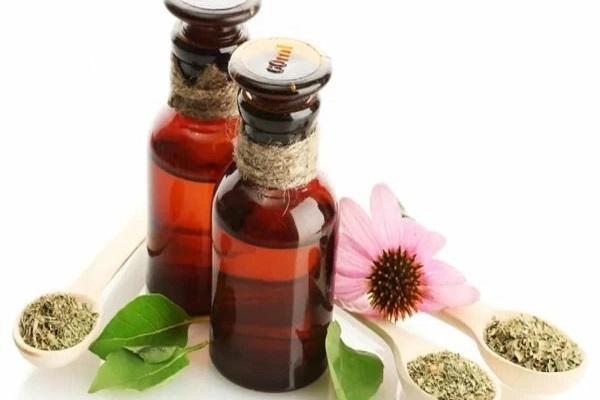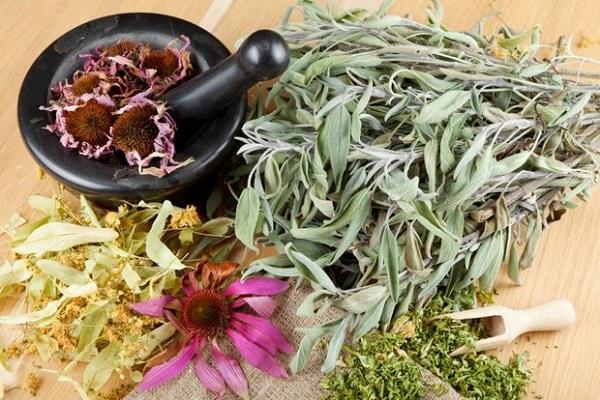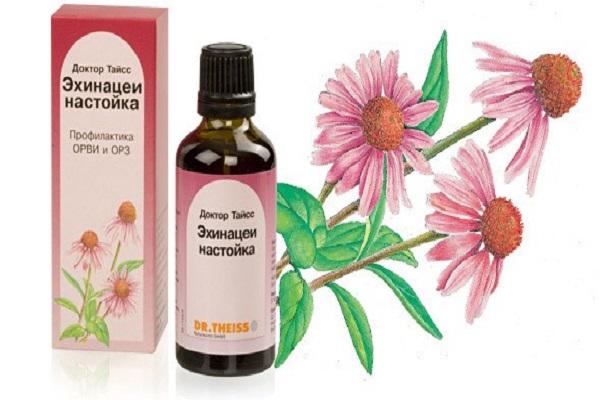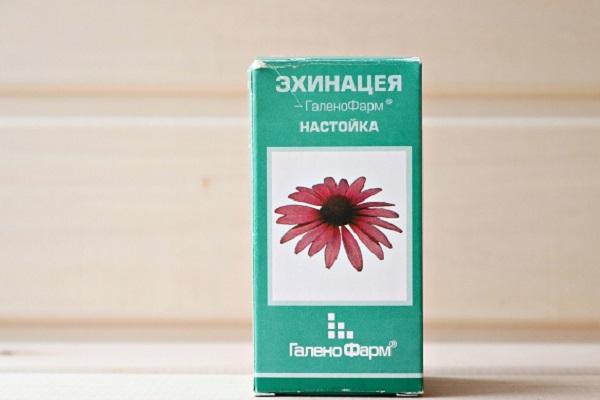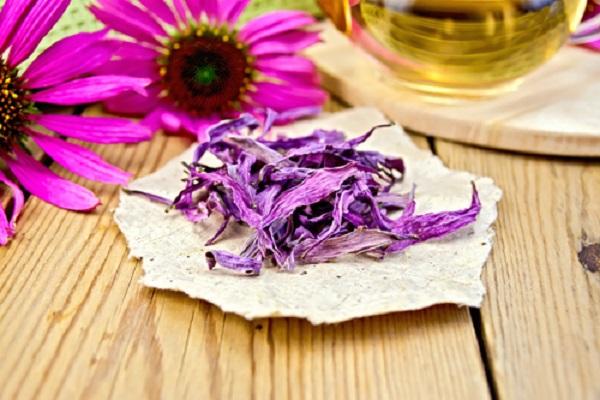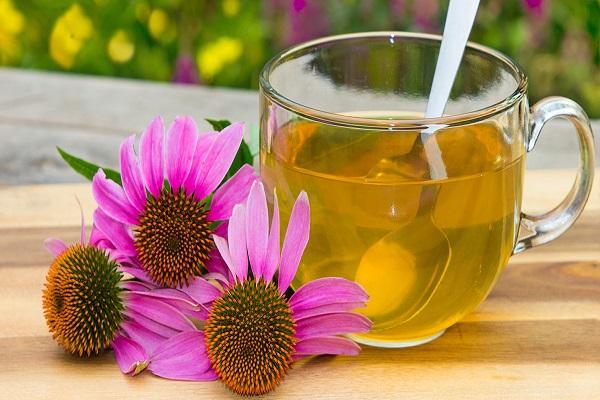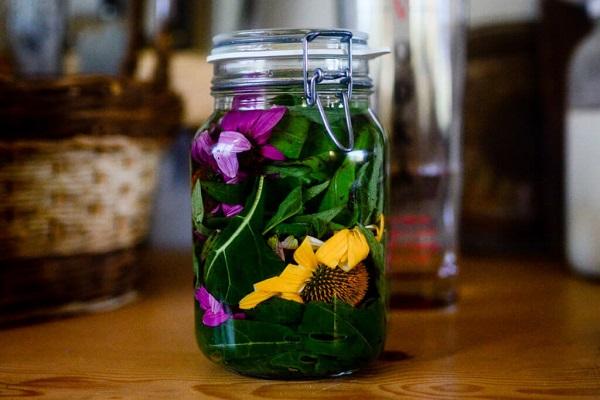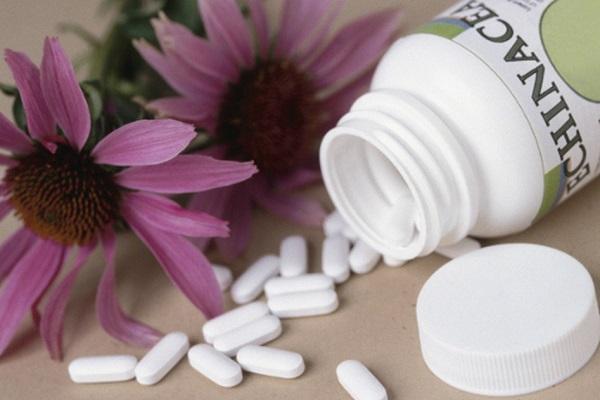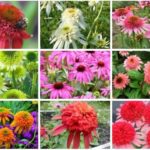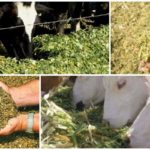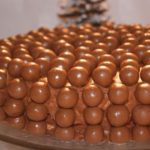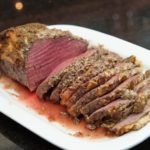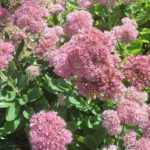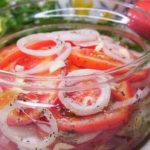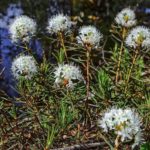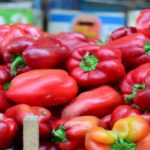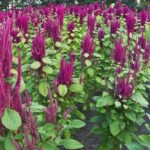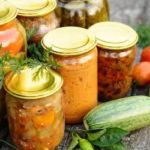Echinacea is a flower whose benefits are known all over the world. It was also used by Indian tribes to heal wounds and prepare antidotes for snake bites. Decoctions were prepared from it to restore the strength of soldiers after battles.
- Chemical composition
- Beneficial properties of Echinacea
- For the female body
- For men
- Healing properties for children
- For what diseases is medicinal herb used?
- Colds, runny nose, flu, ARVI
- Bladder and kidney diseases
- Cystitis and urethritis
- Prevention, boosting immunity
- Lymphadenitis
- BPH
- Headaches, joint pains
- Gastrointestinal diseases
- HPV virus
- Conjunctivitis
- Open wounds, boils, ulcers, burns
- Nervous disorders, stress, chronic fatigue
- Inflammations of the mouth and throat
- Traditional medicine recipes
- Oil extract from the roots of the plant
- Juice of fresh inflorescences
- Infusion
- Echinacea decoction
- Tea
- Tincture made from the raw root of the plant
- Universal alcohol tincture of Echinacea
- Use of a unique plant for skin
- Contraindications and side effects
- Effect on pressure
- Can Echinacea Raise Your Fever?
There are several types, but only one has medicinal properties. With its help, many diseases are cured, but not everyone can use it. Echinacea, with its medicinal properties, also has some contraindications.
Chemical composition
The composition of chemical elements in Echinacea purpurea is very rich.
| Throughout the plant | In leaves and stem | In the roots |
| Calcium | Flavonoids | Essential oils |
| Potassium | Saponins | Fixed oils |
| Manganese | Echinacin | Phenolcarboxylic acid |
| Zinc | Essential oils | Inulin |
| Cobalt | Polyamines | Betaine |
| Selenium | Polysaccharides | Glucose |
| Molybdenum | Echinolone | Resins |
| Silver | Echinacoside | |
| Enzymes | Acids: | |
| Kumarova | ||
| Organic | ||
| Ferulic | ||
| Coffee shop | ||
| Resins | ||
| Phytosterols | ||
| Tannins |
Important! When used correctly, echinacea can protect the body from many diseases, reduce the risk of complications and speed up recovery..
Beneficial properties of Echinacea
The main property is considered to increase immunity. Preparations with this flower are antiviral and anti-inflammatory.
For the female body
They give good effects when women are infected with fungi and infections.
For inflammation:
- in the ovaries;
- in the cervix;
- bladder;
- kidneys.
The products normalize hormonal levels due to their beneficial effects on the thyroid gland and adrenal glands.
For men
Echinacea only provides benefits for men. With its help, diseases of the reproductive system are treated. Helps with:
- inflammatory diseases;
- prostatitis;
- adenoma;
- sexually transmitted infections.
Echinacea cleanses toxic substances and restores the body's protective barrier.
Healing properties for children
Children are given preparations with echinacea for:
- prevention of influenza and ARVI;
- strengthening the immune system;
- treatment of stomatitis and gum inflammation;
- inhalations for bronchitis;
- wound healing.
Compresses are used for external use. They will help relieve inflammation from abrasions, bites, and cuts. The tincture is diluted with warm water 1:2 and soaked in gauze, which is applied to the site of inflammation.
For what diseases is medicinal herb used?
There are indications for the use of Echinacea-based drugs. In some cases, they can be of an auxiliary nature, and in others - the main one (to restore immunity).
Colds, runny nose, flu, ARVI
It is useful to take a decoction. A tablespoon of root is poured with 300 grams of water, mixed and placed in a steam bath for half an hour. Cool and drink 30 grams before meals.
Bladder and kidney diseases
Special tincture: 20 grams of herb are mixed in a glass of alcohol. Pour into a bottle and leave for 21 days in a dark place. Drink 20 drops for 10 days.
Cystitis and urethritis
Echinacea helps relieve inflammation and activate the human immune system. For these diseases, a mixed composition or infusion is used.
Take equal parts of bearberry herbs, yarrow and Echinacea purpurea inflorescences. For 10 grams of dry mixture you need 300 milliliters of boiling water. Keep on low heat for 15 minutes. Then wrap it in a towel and leave it for an hour. Take 80 milliliters before meals.
Prevention, boosting immunity
To strengthen the body's defenses, drink a decoction.Preparation: 1.5 teaspoon of raw material is poured with 350 milliliters of boiling water and placed in a water bath for a quarter of an hour. This is a serving for 3 doses: 100 milliliters before meals. The course is from 2 to 3 weeks.
Lymphadenitis
Lymphadenitis is an inflammatory process in the lymph nodes. Appears due to the penetration of various microorganisms into them. It is characterized by pain and enlarged lymph nodes in the groin and neck.
Echinacea contains bioactive substances that restore the protective functions of the immune system. Echinacea is used in combination with antibiotics and antiviral drugs. Adults: 4 times a day, 10 drops of tincture.
Children are given syrup. It is boiled from 4 tablespoons of chopped plant roots and 350 milliliters of water for 20 minutes. Then add 3 tablespoons of fresh mint. After cooling and straining, dissolve a couple of tablespoons of honey in the broth. The child is given syrup three times a day, 1 teaspoon.
BPH
The infusion will have a positive effect. To do this, fresh or dry leaves are placed in a jar at the bottom and filled with vodka 1:10. Leave in a dark place for 14 days. Drink 25 drops before meals, 3 times a day.
Headaches, joint pains
The decoction can reduce joint pain and alleviate migraines and insomnia. To do this, boil 200 grams of water with a teaspoon of plant leaves for 10 minutes. Then leave to infuse for an hour. You need to drink 100 milliliters before meals.
Gastrointestinal diseases
Echinacea tincture is effective for diseases of the gastrointestinal tract and constipation. It is recommended to take 3 courses in a row, with three-day intervals after each. One course is 10 days. Drink the tincture 3 times a day, 30 drops.
Preparation: 20 grams of the plant are poured with 200 grams of vodka.Leave in a dark place for 3 weeks, shaking occasionally.
HPV virus
After the papilloma has been removed, echinacea tincture is used to boost immunity and prevent the recurrence of the disease.
Preparation of tincture: you need to take the herb and 70% alcohol (1:10). The product is infused for 14 days. After straining, drink for 1 month, 20 drops, 3 times a day.
Conjunctivitis
For conjunctivitis, use a decoction for internal and external use. Take 1 tablespoon of echinacea roots per 200 grams of water and simmer over low heat for half an hour. Then cool and filter. Drink 4 times a day, 2 tablespoons.
Open wounds, boils, ulcers, burns
The juice from the flower has an antiseptic, healing and anti-inflammatory effect. It is used for skin damage. The substances it contains accelerate wound healing and increase blood clotting.
For eczema and psoriasis, use a tincture. To prepare, take 60 drops of tincture and dilute it in 100 milliliters of physical solution. Gauze soaked in this product is applied to the sore spot and secured with a bandage. The bandage needs to be changed 2 times a day.
Nervous disorders, stress, chronic fatigue
For these diseases, decoction and tincture are used. Tincture recipe: add 10 grams of chopped plant roots to 100 grams of vodka and leave for 24 hours. Then filter and drink 30 drops, 3 times a day.
Inflammations of the mouth and throat
For inflammation of the oral cavity, alcohol tincture and infusions from medicinal plants are used for rinsing. This procedure helps relieve inflammation and relieve pain. Restores damaged mucous membranes, killing pathogenic microorganisms.
For the decoction, take 1 tablespoon of the raw material and pour a glass of boiling water.Let it brew for 1 hour and strain. Gargle up to 4 times a day.
Traditional medicine recipes
Echinacea is a very popular medicinal plant among folk healers.
Oil extract from the roots of the plant
Fresh, peeled and chopped roots - 100 grams, pour in refined vegetable oil - 500 milliliters. They insist for a month.
Application:
- in inflammatory processes in the upper respiratory tract. Drink 1 teaspoon after meals with water;
- for stomach ulcers. Mix 1 tablespoon each of sea buckthorn and echinacea oil. The course of treatment is 1-2 weeks.
Juice of fresh inflorescences
The juice is squeezed out of the crushed inflorescences. Without diluting anything, take 5 milliliters before meals, for colds.
Infusion
A handful of dry leaves is poured into a thermos and filled with one liter of boiling water. Let it brew for 4 hours. Take 50 milliliters, 5 times a day. Helps with cystitis.
Echinacea decoction
You need 30 grams of flower buds and 500 grams of boiling water. After boiling, simmer over low heat for 15 minutes. Remove and leave for 3 hours. Take 100 milliliters before meals, 3 times a day.
Tea
Used for colds. Leaves and other parts of the flower are used. You can add rose hips. One teaspoon of a dry mixture of herbs and several rose hips is poured with 500 grams of boiling water and allowed to brew for 10 minutes. At one time you need to drink 0.5 glasses of warm tea.
Tincture made from the raw root of the plant
Take a fresh root and pour 100 milliliters of alcohol. Infuse in a dark place for 24 hours. Take three times a day, 20 drops. Recommended for depression.
Universal alcohol tincture of Echinacea
All parts of the plant are used for production. Take 100 grams of raw material and fill it with 400 grams of alcohol. They insist for 14 days.
Use of a unique plant for skin
Freshly squeezed juice from the leaves is used for skin. They lubricate problem areas before going to bed:
- ulcers;
- acne;
- dark spots;
- freckles.
Freshly squeezed juice will provide first aid for insect bites.
Contraindications and side effects
Not only does Echinacea provide health benefits, it can sometimes cause harm. The following drugs cannot be used with it:
- children under 12 years of age;
- people with diabetes;
- patients with tumors;
- hypertensive patients;
- women during pregnancy and breastfeeding.
Should be used with caution in elderly people.
Effect on pressure
Taking echinacea increases blood pressure. Because of this, it is contraindicated for hypertensive patients. On the contrary, the plant has a beneficial effect on hypotensive people. Helps improve vascular tone and has a general strengthening effect on the entire body. This is very important for people with low blood pressure.
Important! If hypotension has become a symptom of endocrine abnormalities or central nervous system disorders, then echinacea can alleviate the patient’s condition, but will not provide significant improvements.
Can Echinacea Raise Your Fever?
Sometimes your body temperature may increase after using echinacea. There is no need to panic - this is normal. There is a reaction of weakened immunity to the invasion of antigens.
If a person rarely gets colds or gets infected with a virus during epidemics, then he does not need Echinacea. He already has good immunity, and there is no need to strengthen it.

